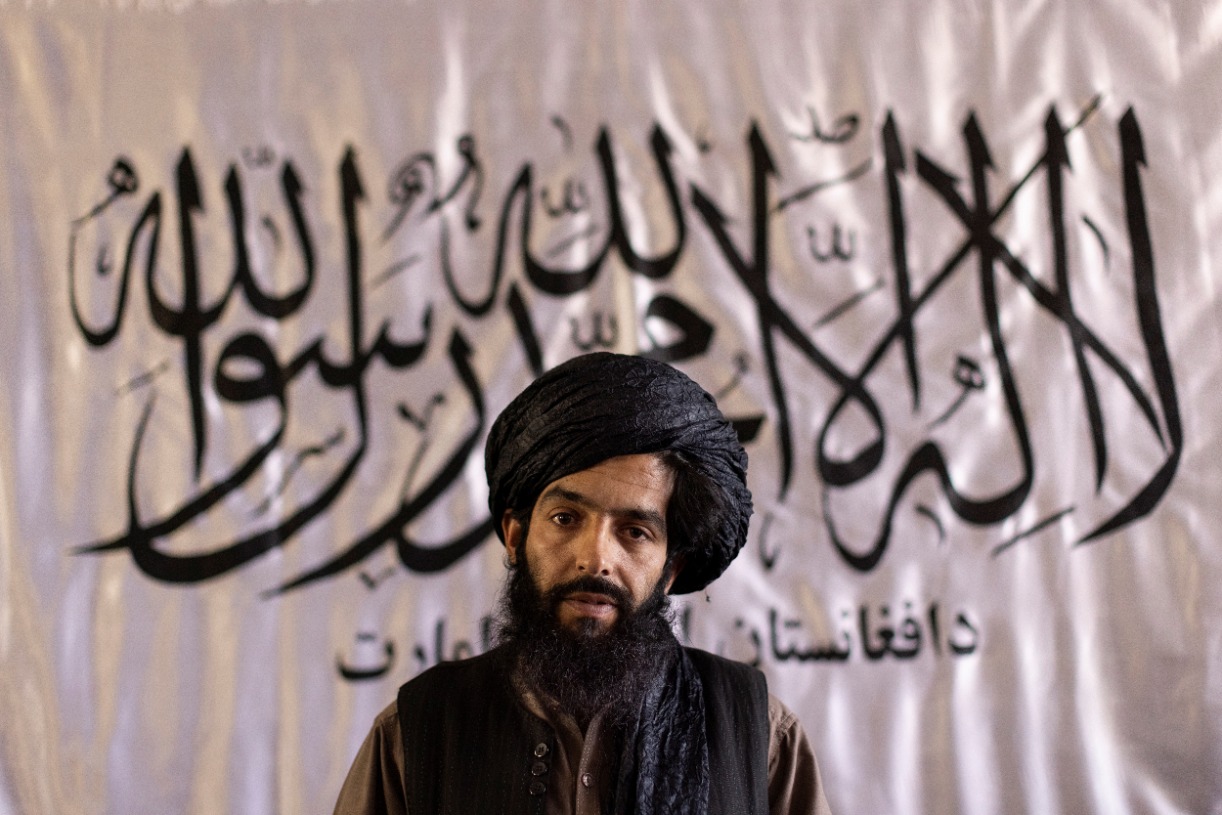The Taliban face a legitimacy crisis in which their international recognition depends on the adoption of minimum standards such as respect for women’s and minority rights, democracy, the rule of law and, more importantly, an election to form an inclusive government.
Iran has faced the same challenges since its Islamic revolution in 1979, but the regime has successfully gained international legitimacy. Could Iran become a viable model for the Taliban? The Islamic Republic is already encouraging the Taliban to reach the minimum threshold to gain international recognition. For example, the meeting between a Taliban delegation and Afghan opposition figures in Tehran earlier this year parallels Iran’s latest attempt to promote Afghan reconciliation and inclusive governance.
Iran and the Taliban established their governments based on Sharia law. Both also have a supreme leader, although the Islamic Republic has attempted to cross Islamism with republicanism through a complex web of institutions. As a theocratic republic, the Iranian regime adopted the theory of velayat-e-faqihthe rule of jurisprudence, in which the supreme leader has complete command and oversight of all political and military systems.
Islamism and republicanism are two wings of the Islamic Republic of Iran and the system was created to balance theocracy and democracy. Elections have been held regularly in the Islamic Republic, but the people’s desires must coincide with the supreme leader’s opinion. Although some observers stress that extensive candidate disqualifications characterize the Iranian election campaign, Iran has held more than forty elections since the Islamic Revolution.
On the other hand, the Taliban have chosen the Saudi template for governance, where Sharia law governs the country but the right to self-determination through elections is meaningless. In such a model, people pledge allegiance to the supreme leader or king, promising submission, obedience, devotion, and loyalty known as Bai’at in Islamic terminology. So far, the Taliban have shown no interest in forming a government through referendums. However, it is clear that the Taliban must establish an inclusive government in order to be officially recognized as a legitimate government by the international community.
The Taliban leadership council directly appoints the supreme leader, the head of government, but some have argued that the Taliban should learn from the Iranian model of government and let the people vote on the overall direction of various policies. Yet the Taliban are completely alien to democracy and elections; The Taliban believe that all authorities and powers must be centralized into one Amir ul-Momineenthe leader of the believers.
Although some believe the Islamic Republic has also faced a legitimacy crisis in recent years, its political model and treatment of human rights differ markedly from those of the Taliban. For example, while the Taliban banned girls from secondary education and all arts such as painting, cinema, music and sculpture, Iran has allowed girls to attend school and university since the 1979 Islamic Revolution. Likewise, a number of Iranian women have been elected ministers or deputies to Iranian presidents in recent years. And many Iranian women have won seats in parliament. Although some restrictions were certainly placed on Iranian women, Iran could provide a model for how the Taliban could maintain an Islamic state while softening their stance on women’s role in society. Women’s fundamental rights should not be ignored.
While the Islamic Republic does not offer an ideal model for Afghanistan, it does offer an achievable option for the new government in Afghanistan. The Iranian regime has accumulated extensive experience in fighting against the Western and modern world since 1979, and disagreements over human rights and political issues regularly jeopardize relations. As Mansour Haghighatpour, adviser to the Iranian parliamentary speaker, recently stated, Iran is undoubtedly willing to help the Taliban learn from the Iranian model and expand its influence in the region.
Mohammad Javad Mousavizadeh is a journalist and analyst on international affairs and foreign policy. He has written many articles for digital publications worldwide. He is also an English translator for Iranian newspapers and news agencies. Follow him on Twitter @mousavizadehj.
Image: Reuters.

